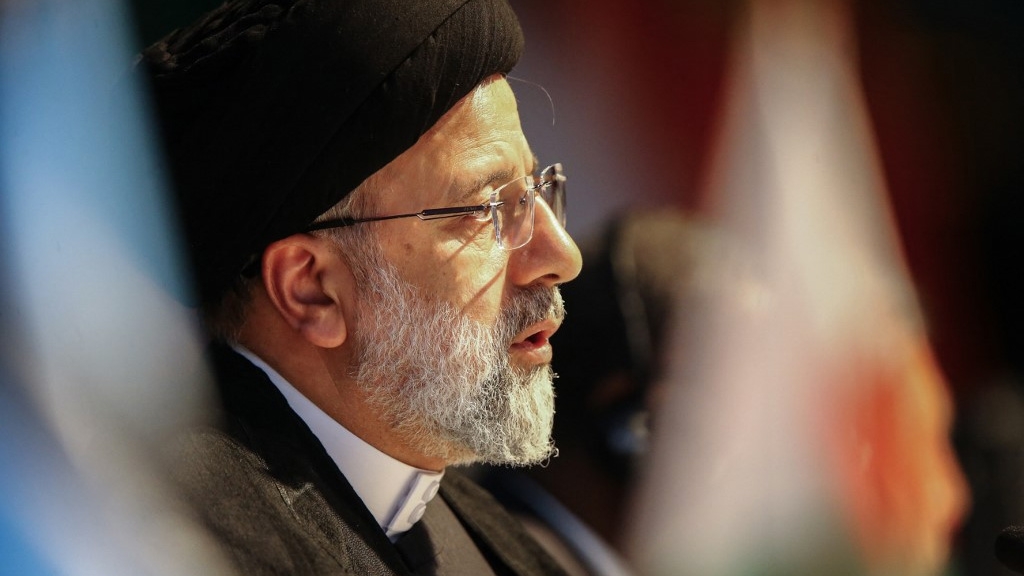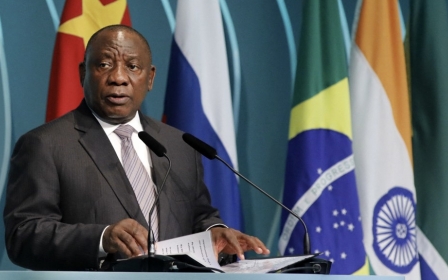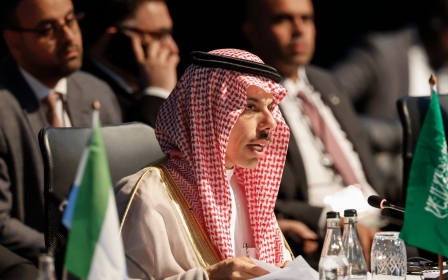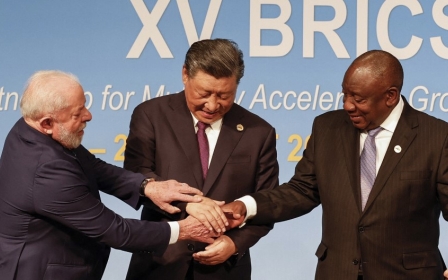Iran: Can the Brics help Tehran break free from western sanctions?

After Iran officially applied to join Brics last summer, it was not expected that an invitation would come within little more than a year. Iran’s membership in the Shanghai Cooperation Organisation, for example, took around 15 years to complete.
Applying to join Brics was viewed as a strategic decision by Iranian President Ebrahim Raisi’s government. This government appears to take a pragmatic and realistic view of the economic potential of the Brics bloc, rather than seeking to exploit this alliance for domestic political gain.
The Raisi government does not intend to forgo membership of international and regional alliances in return for better relations with the West. Upon returning from the recent Brics summit in South Africa, Raisi said Iran would not leverage foreign policy for the purposes of internal political gains, noting: “We are looking to secure national interests … [including] the removal of sanctions and relations with neighbouring states.”
Ali Bagheri, Iran’s deputy foreign minister, said the country “should seek national interests in the East and the West and should not rely on just one part of the world”. Iranian Foreign Minister Hossein Amir-Abdollahian said Iran’s membership of the Brics bolstered the country’s goal of supporting multilateralism.
Beyond the rhetoric, however, Iran has publicly backed the de-dollarisation programme of Brics, aiming to develop its trade ties with the emerging powers of the Global South, while moving away from American dominance over the world’s financial institutions.
New MEE newsletter: Jerusalem Dispatch
Sign up to get the latest insights and analysis on Israel-Palestine, alongside Turkey Unpacked and other MEE newsletters
Raisi told the summit that Iran had “unique capabilities” and was “ready to participate in all three areas of Brics’ functions, namely political-security, economic-financial, and social”. He added: “With its unique transit position, vast energy resources, and high scientific and engineering capabilities … [Iran] is eager to cooperate with the members of Brics on joint economic and investment projects.”
On the sidelines of the Brics summit, a bilateral agreement was reached for Iran to develop five refineries in South Africa, while Tehran has also held talks on joining the Brics’ New Development Bank - a move that could help it secure financing for critical infrastructure projects, such as the North-South Corridor connecting India to Russia via Iran.
Coercive policies
As part of their policies aiming to isolate Iran, for more than four decades, the US and European countries have denied Tehran access to global financial systems, while unilateral US sanctions have pushed non-western countries to follow Washington’s coercive policies towards Iran.
Viewing the permanent removal of sanctions as highly unlikely, Tehran clearly expects that joining Brics will provide new opportunities to facilitate foreign trade, without being dependent on the dollar and the western financial system. At the same time, Raisi’s government wants to diversify foreign financial and economic relations with the Global South, avoiding over-reliance on Beijing and Moscow.
Iranian government think tanks, however, argue that Iran should be realistic about the capabilities of Brics, and not consider it an anti-western force. Brics is still lacking in terms of political and strategic coordination among members, and internal competition among states, such as China and India, remains a key tool for the US to curb the group’s effectiveness.
Tehran cannot expect Brics to fundamentally change its domestic economy, foreign trade or financial dealings in the immediate term
Within Brics, the dominant view at the present moment appears to be to adhere to the existing international order, avoiding costly confrontations with traditional economic and political structures. Russian President Vladimir Putin, for example, skipped the recent Brics summit in South Africa in the face of the International Criminal Court’s arrest warrant. The New Development Bank has also said it would not consider new projects in Russia amid western sanctions.
Moreover, India’s strategic relations with the US and participation in geo-economic initiatives such as I2U2 - a partnership between India, Israel, the UAE and the US - show that key western partners remain critical to New Delhi.
Some of the founding members of Brics, such as Brazil and India, and some forthcoming members, such as the UAE and Saudi Arabia, are regional partners and allies of the US. They are not proposing that the US-led global financial and economic standards should be replaced with Brics, despite moves by Riyadh and Abu Dhabi towards non-dollar bilateral trade with China and India.
Meanwhile, Brics remains the only platform connecting Iran and these countries - but in the absence of specific agreements or commercial standards, Tehran cannot expect Brics to fundamentally change its domestic economy, foreign trade or financial dealings in the immediate term.
Continuing negotiations to remove or reduce western sanctions, along with talks among Brics members to create mechanisms and transparent rules for financial transactions, are essential prerequisites for Iran to convert Brics into a flourishing platform to pursue its goals.
The views expressed in this article belong to the author and do not necessarily reflect the editorial policy of Middle East Eye.
This article is available in French on Middle East Eye French edition.
Middle East Eye delivers independent and unrivalled coverage and analysis of the Middle East, North Africa and beyond. To learn more about republishing this content and the associated fees, please fill out this form. More about MEE can be found here.





